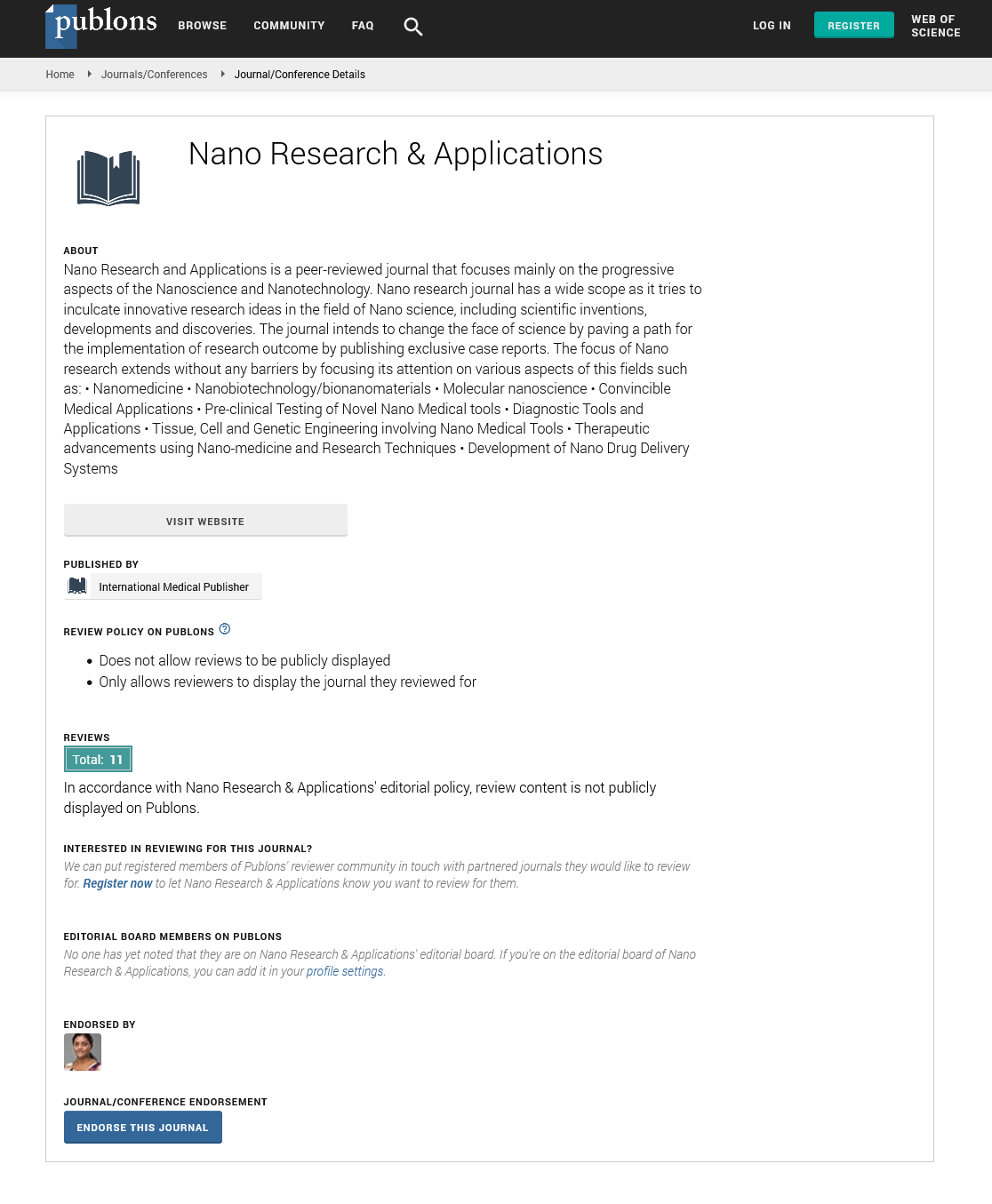ISSN : 2471-9838
Nano Research & Applications
The development of coaxial electrospun polycaprolactone/silk fibroin based nanofiber for antibody immobilization
18th Edition of International Conference on Emerging Trends in Materials Science and Nanotechnology
January 28-29, 2019 Barcelona, Spain
Tugba Akbay, Begum Gokmen, Ozan Ozcan and Hava Dudu Taslak
Marmara University, Turkey
Posters & Accepted Abstracts: Nano Res Appl
DOI: 10.21767/2471-9838-C1-031
Abstract
In the present study, uniform coaxial electrospun polycaprolactone/ silk fibroin nanofiber was prepared through adjusting the processing parameters and shown to be a viable substrate for antibody immobilization. Using a coaxial tube spinneret with two different solutions, which are pumped to the inner tube and outer tube, electrospun fibers with core-shell structures can be fabricated. Solutions of polycaprolactone (15%) and polycaprolactone (10%)/silk fibroin (10%) blend were individually delivered to the inner and outer channel of a coaxial-tube spinneret for electrospinning to prepare core-shell fibers. The efficiciency of antibody immobilization on nanofiber was tested by in point of care testing. Coaxial electrospun polycaprolactone/ silk fibroin nanofibers showed superior antibody attachment, compared to polycaprolactone based nanofiber, due to relatively higher hydrophilicity. This study of incorporation silk fibroin with polycaprolactone has merit of preserving the excellent biocompatibility of silk, and the fibrous three-dimensional polycaprolactone/silk fibroin nanofiber can present enhanced antibody immobilization potential than polycaprolactone alone. Thus this method might open a new pathway to preparing various functional nanofibers with enhanced bioactivity for point of care testing material.
Biography
Tu√?¬?ba Akbay has completed her PhD at Marmara University and Postdoctoral studies at Virginia Polytechnic University, Moleculalar Biology Department. She has a patented product for the removal of harmful substances from breast milk. She has published more than 30 papers in reputed journals and has been serving as an editorial board member of Turkiye Klinikleri Journal of Dental Sciences cases.
E-mail: ttunali@marmara.edu.tr
Google Scholar citation report
Citations : 387
Nano Research & Applications received 387 citations as per Google Scholar report
Nano Research & Applications peer review process verified at publons
Abstracted/Indexed in
- Google Scholar
- China National Knowledge Infrastructure (CNKI)
- Directory of Research Journal Indexing (DRJI)
- WorldCat
- Publons
- Secret Search Engine Labs
- Euro Pub
Open Access Journals
- Aquaculture & Veterinary Science
- Chemistry & Chemical Sciences
- Clinical Sciences
- Engineering
- General Science
- Genetics & Molecular Biology
- Health Care & Nursing
- Immunology & Microbiology
- Materials Science
- Mathematics & Physics
- Medical Sciences
- Neurology & Psychiatry
- Oncology & Cancer Science
- Pharmaceutical Sciences
